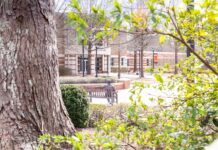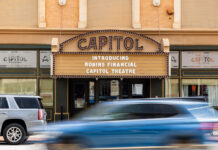By Vivien Chiang
It is hard to imagine that in the Holy Land, where Jesus was born, people are struggling for food and water. But buildings, streets, and cars are usually dirty, worn out, messy, and even broken. Some buildings look like ruins. There was trash everywhere on the street, and children played besides the garbage dumps.
In the market I saw many children working. I wondered if these children went to school. I wished they were not child laborers, but it is possible they will work in that market for the rest of their lives. There is no dreaming or hoping in Bethlehem, but only struggling for life.
Part of our service learning initiative was to repair homes. One day we were painting people's houses and met some poor, older ladies. In one of the houses the situation was so bad. There was mold on the wall and the condition of the house was poor. There was a garbage dump outside the house. I do not think an old lady or anybody should live in that place. We cleaned the mold on the wall and repainted the house, but I wondered how long it would last since the quality of the house was poor. The mold problem may occur again. I feel so sad since I know that there is nothing I can do to help her.
The extreme disparity between the rich and the poor is also a problem in Bethlehem. We went to a souvenir store called “Johnny's.” Other store owners called it mafia. I do not understand the business conflicts among these stores but I do see the difference between the wealthy people and the poor. When we went to an Arabic mass in the Church of the Nativity, I saw an old man with dirty clothes standing outside the church and selling some fake jewelry. Nobody paid attention to him. When we entered the church, I saw the fantastic decorations and nicely dressed people; but that old man's image was stuck in my head. I regret that I did not buy anything from him. I was so ashamed to stand in that splendid church with my nice clean clothes and ignore the poor people outside the church. If Jesus was there, he probably would have stayed with the poor outside the church. At that moment, I started to rethink the meaning of being a Christian. It is cool to tell other Christians that we went to the Holy Land; but do I really understand the meaning of being a pilgrim?
Apart from the local problems, Palestinians in Bethlehem also suffer from their neighbor Israel. One of the biggest problems is the water shortage. The only water supply in Bethlehem is from Israel, but it seems that “God's chosen people” do not like to share the natural resources with others. Israelites even forbid Palestinians to dig wells. In summer, the water shortage problem becomes worse. Obviously, the Palestinians in Bethlehem have been dealing with the water problem for their entire lives. For many of us, however, it was a new experience. This is actually not my first time to experience water shortage. Once before, I lived in a refugee camp for a week. It was a mission trip from my church to a place in China that had just had an earthquake. Compared with the refugee camp, the situation in Bethlehem is better but still not that good. The difference between the refugee camp and Bethlehem is once people from the refugee camp resettle in a different place; their living conditions improve. In Bethlehem, however, the Palestinians have to deal with this problem all their lives.
The Israeli government also built a separation wall between Jerusalem and Bethlehem to make the life in Bethlehem even harder. I wonder if the Israeli government is violating the Palestinians' human rights since water should be the basic need of human beings. How can a country claim themselves as the “chosen ones” but not respect their neighbors' basic human rights?
Although injustice and suffering are common in Bethlehem, it is not hard to find happy faces in that city. Many people do not complain but enjoy every day's work and use all their art to praise the Lord. Perhaps sometimes happiness is not from our living environment but from our heart. heThey use the most positive attitude to face the unfair lives. They even make fun of their oppressor, the Israeli soldiers. Prophet Habakkuk was right by saying “For though the fig-tree shall not blossom, neither shall fruit be in the vines; the labor of the olive shall fail, and the fields shall yield no food; the flock shall be cut off from the fold, and there shall be no herd in the stalls. Yet I will rejoice in the LORD, I will exult in the God of my salvation (JPS Hab 3:17-18). In the past I have only read these verses; but in this trip, I experienced it. Happiness is a choice. No matter how the situation may change, our attitude remains since we know that our Lord is unchangeable.
I am actually glad that we had this “suffering” experience. I guess most of us grew up in a wealthy place which means poverty has never been close to our lives. As seminary students, we always say that we should help the poor but if none of us really experience poverty, how can we understand their feelings and know what to do to help the poor people? If a doctor has never suffered from any kind of sickness, how can he or she understand the pain of the patients? This is why we always say that Jesus can understand our suffering since he experienced the same thing.
I learned how to face suffering with a positive attitude. On the surface, it seems that we were helping people in Bethlehem. Actually they are teaching us a lifelong lesson. They used their life attitude to teach us that sometimes things do not work out as we expect; sometimes things are totally out of our control; and sometimes there is nothing we can do to improve our lives. These bad situations, however, cannot control our souls. Perhaps we cannot change anything, but we can choose to face the situation bravely and joyfully. Just like many Palestinians, they cannot make the Israeli government send them more water; they cannot change their living conditions; they cannot destroy the separation wall; they cannot improve the poverty and gender problems; and they cannot lower the temperature in the summer time. These people choose to face these problems with a smiling face. Hopefully one day, I can use the same attitude to look at problems in my life.
After ten days serving and learning in Palestine, we went to our second stop, Jerusalem. This city is extremely different from Bethlehem. Children were riding bicycles in nice parks instead of working in the market and playing by the garbage dump. We can no longer walk in the middle of the street as we did in Bethlehem. Buildings, cars, and streets are clean and tidy. There are shopping malls, fancy restaurants, cafés, and supermarkets. Unlike Bethlehem, Jerusalem is modern and western. At the same time, it is also an ancient city. Three world religions consider this city as the Holy Land. It preserves constructions from thousands of years ago. Jerusalem successfully combines today and yesterday.
The Israeli people never forget their history. At the same time, they never slow down progress. The first thing we did in Jerusalem was to see the entire view of the city. I have seen this view hundreds of times in the book, but standing in front of it was totally different. When Dr. Culpepper introduced the famous sites, he was not using a book or a map, but the real sites. In addition, many famous sites, such as the Church of the Holy Sepulcher, are incredible. The splendid construction amazed me and the many people groups' enthusiasm touched me. I guess some believers know that these places are historically unverified; but for them, what really matters is not the archeology, but the love of God. Perhaps, God also does not care if we can find the real site of where Jesus got crucified, but how much we love God and love each other. Just like all other traditional sites, the Holy Sepulcher is not telling people what happened in history, but reminding people how much God loves us. These ancient sites located in a modern city means no matter how the world changes, we should still have faith in our Holy Lord. The Holocaust museum showed the great combination of today and yesterday. The Jewish people never forget their darkest time in history. Honestly, I know very little about the Holocaust. When I grew up, the Chinese education system did not pay too much attention to this part of history. Since the Japanese also killed numerous Chinese during the Second World War, the Jewish Holocaust has never been a main topic in our history class. I remember my high school world history class teacher only spent five munities on this topic when she was teaching WWII. In addition, since the battles in Europe were too far away from China, Chinese do not hate the Nazis as the Europeans and Americans did. It is not something that people in China pay attention to, just like in America, people are not interested in the Nanjing Massacre during the WWII. The only reason I knew something about the Holocaust before I went to this museum is because my Faith Development class required us to read the Holocaust book “Night.” Then I finally realized how bloody and horrible this part of history was. In the museum, the pictures and videos shocked me. Maybe my high school teacher was right: animals will never treat their same kind of species like human beings do. The Holocaust proved that humanity can be much more cruel than animals. It is true that we human beings are intelligent, but intelligence without morality and love can be ruthless. This museum not only reminds people not to forget about this part of the history, it also shows that the Israelites will not be defeated easily. Even after the cruelest treatment, the Israelites stood up again and now they are in the Promised Land. The Holocaust happened decades ago, but it still impacts our lives today. The message from this museum is: remember history and never let it happen again. In a word, the Jewish people choose to preserve and remember all the happiness and sorrow of their history. They have done a good job to combine what happened in the past into their modern daily life. They love their nation and they try their best to create a better future. Israel can be a great country if they can be more reasonable to their neighbors. Sadly, I understand that it is impossible for Israelites to love their nation while at the same time giving up their land in Palestine. Perhaps a joke from Palestine is right: this conflict cannot be solved in God's life time. The third stop of our trip was Galilee. It is a peaceful village. We stayed in the Mount of Beatitudes Hostel. After two weeks' rush we finally slowed down and enjoyed our time in Israel. Galilee is an incredible place. This peaceful and comfortable village is a good place to release our life burdens. In this place, life is slow, views are pretty, air is fresh, and people are nice. I am surprised that Jesus would choose such a peaceful village to achieve his great plan. If there is a selection for the most influential city in the world, Galilee may be the last one that comes to people's mind. Ironically, it is this peaceful village that changed human history. If Jerusalem is the best place for us to learn the divine nature of Jesus; Galilee should be the best place to learn the human nature of Jesus. What Jesus gave to this world was not only his death, but also his deeds and words. We understand the love of God through his crucifixion and resurrection. We learn how to love each other through his teachings and works. Only learning is not enough, we must take an action. Throughout history, the extreme disparity between the rich and the poor never disappear. Take Bethlehem and Jerusalem as example, while some Bethlehem children work in the market or play by the garbage dump, the Jerusalem children were riding their bicycles with their lovely dogs in nice parks. Once again the same question came to my mind, as a pilgrim, how should I understand the problem of poverty? What Jesus did in Galilee is the answer. Jerusalem was the Holy Land for Christianity because it was where Jesus gave up his life; but if we want know more about his life, Galilee is the best place. The only reason for this small town to become so famous is because Jesus used to live, work, and teach there. We know that we should love each other, but do we really know how to act it out? The service learning in Bethlehem was one of the ways to love each other. Sadly, I realized this point too late. I wish I could have done better in Bethlehem. In my church and school, people talk about helping and loving each other all the time, but we do not always have the opportunity to serve others in the name of Lord. I do not even know any poor people in the States. My life is always about study. When I was in Bethlehem, there was a boy who asked me if I wanted come back again. My answer was yes. I wish I could have another opportunity to practice what I learn from the Bible. Although what we have done is limited and probably short term, at least it gives us a great opportunity to serve. I miss Palestine even though it is a poor place. I hope I will have a chance to visit that place again.









